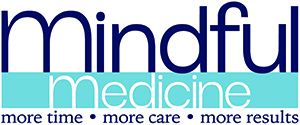Mixing Medication with Psychotherapy is Just the Beginning
Treating mental health is often very different from treating concrete physical ailments. From a young age we are taught to go to the doctor when we feel ill, and the treatment and cure generally involves drugs. Have a fever? Multiple medications can lower your temperature. Have an infection? Antibiotics and other medications will cure that right away. There’s no shortage of effective pain medications and drugs to treat high blood pressure, changes in blood sugar, cholesterol, and thyroidism. One visit and you have a medication that will correct your problem. Though multiple studies have shown that combining psychotropic medications with psychotherapy offers better outcomes than using only one of the two options, many people needing psychiatric treatment assume that medication will do the trick by itself. It’s my opinion that trying to treat with drugs alone is akin to fitting a square peg in a round hole. The approach that works for physical maladies all-too-often results in only partial resolution of symptoms and a frustrated patient. It sets the patient up for disappointment.
I prefer not to debate whether medication or psychotherapy is better, preferring to focus on the synergy created by combining the two modalities. In many ways optimizing treatment by offering multiple solutions seems intuitive. Still, let’s take a closer look at the evidence, which is overwhelming. Combining the two treatments creates faster responses (Bowers, 1990), improved long-term recovery rates (Fava et al, 1998), and decreased rate of relapse (Paykel et al, 1999); (Teasdale et al, 2000). Other studies show improved long-term social functioning (Klerman et al, 1974), improved medication compliance (Basco and Rush, 1995); (de Jonghe et al, 2001); (Vergouwen et al, 2003), greater patient satisfaction (Seligman, 1995); (de Jonghe et al, 2001), and lower long-term health and social service costs (Browne et al, 2002); (Goldman et al, 1998). These are just some of the studies that show a benefit.
By combining medication and therapy I have successfully treated multiple individuals, but considered those successes a beginning. Treating mental illness requires much more, and though my colleagues often refer to my tendency to minimize the role of medications by calling me the “Anti-Psychiatrist,” I’ve found that doing so actually makes the medications work better! Rather than being a slight against medications, I’ve found that by simply taking the focus away from them patients think outside the box and take a more eclectic approach to their own treatment.
I believe that our medication-driven medical model has caused most patients to have preconceived notions and expectations that are simply not reasonable or even feasible. Though it is only logical to begin with the most proven combined treatment of mental health disorders, whenever possible individuals taking medications should supplement with psychotherapy, and vice versa.
I challenge and encourage those who seek mental health treatment to do as we do at Mindful Medicine, where patients can take advantage of both medication management and individual psychotherapy at one location by the same clinician. We also emphasize and integrate exercise, diet, healthy lifestyle changes and more to fully round out treatment.
Thank you for taking the time to read this article. Please check back soon for more articles related to mental health care.
